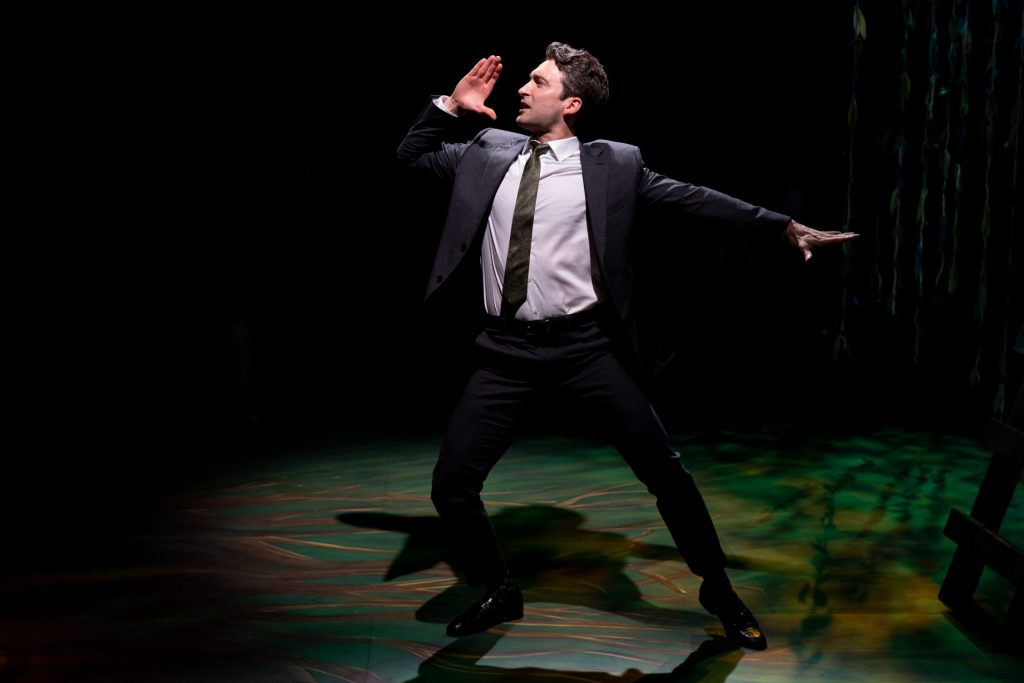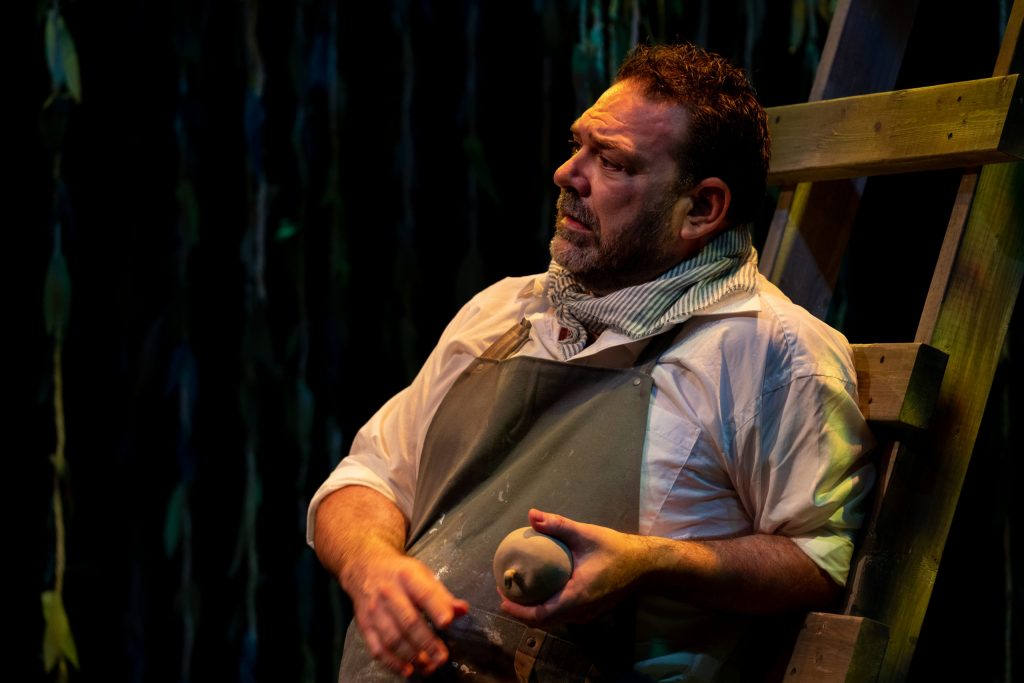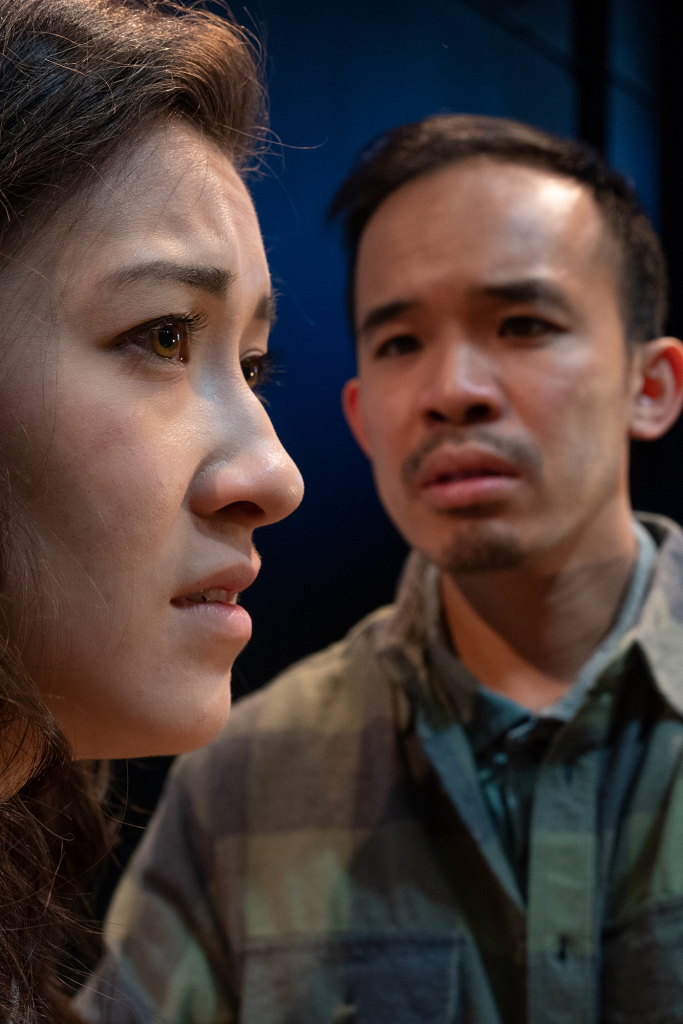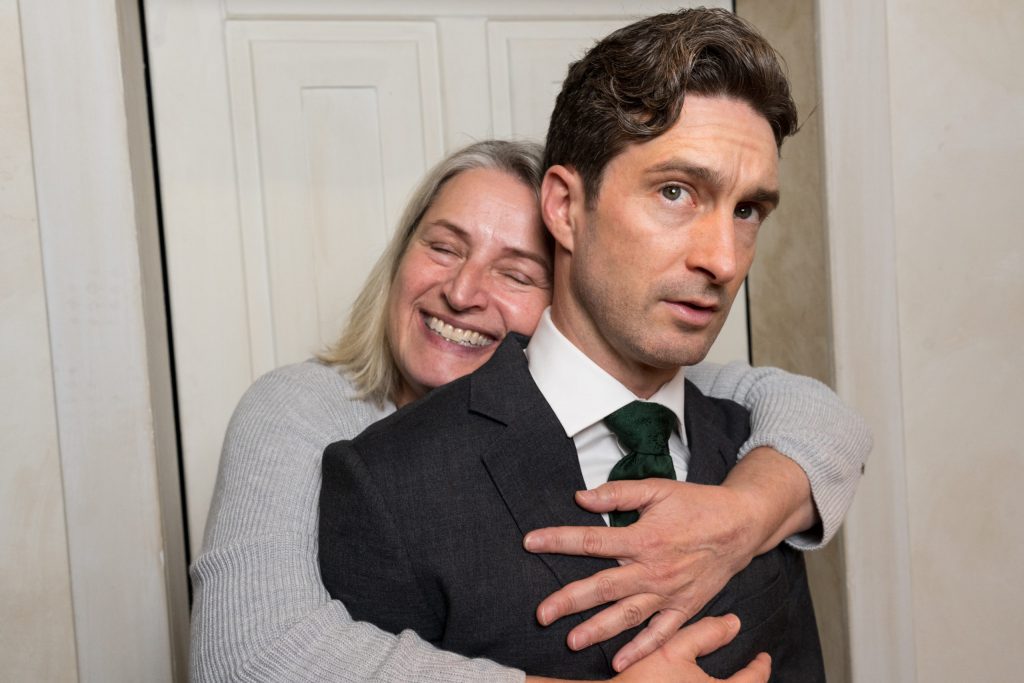
Credit: Moonrider Productions
At Pacific Theatre until October 15, 2022
Tickets $15-$36.50 at pacifictheatre.org or 604-731-5518
Pacific Theatre puts aside fifteen $15.00 “accessible” tickets for each performance for those who cannot afford full price. These can be booked like any other tickets, either online or by phone.
This season, in the interest of maintaining an accessible space for all, Pacific Theatre has initiated a new practice – Mask Wednesdays. Masking is encouraged at all performances – however, masking is a patron requirement for Wednesday evening shows. If you’ve been unsure about returning to the theatre, this is a perfect opportunity. The mask-only performances mean immunocompromised ticket buyers, or anyone uncomfortable sitting in a mask-free environment, will be able to see the show in a space that is safer for them. Performers onstage will not be masked.
Posted October 5, 2022
“Between goodness and me, there is a country highway running past an orchard. Wanting to be good is wanting to get to an apple tree to pick an apple while I’m on the other side of the highway.” This is how Fanny Britt’s play, set in 2018 in the fictional village of Bienveillance in rural Quebec, begins. Under director Diane Brown’s creative, sensitive direction and with a cast so committed to the play that it almost hurts, Benevolence will let you know what that line means.
A commissioned translation by Leanna Brodie for Ruby Slippers Theatre, this production, presented jointly by Ruby Slippers and Pacific Theatre, is the English language premiere of Benevolence. It unrolls as a story told by Gilles Jean – spectacularly, physically, exhilaratingly realized by Charlie Gallant – about his mother (Beatrice Zeilinger), his best friend Bruno (Chris Lam) and Chris’s wife Isabelle (Stephanie Wong) and three other significant men in his life (all played by Paul Moniz De Sá).

Credit: Moonrider Productions
In the director’s notes, Brown says the play culminates “in a challenge to act – to do the right thing – in a society that is morally and spiritually bankrupt.” That is the challenge that Gilles Jean, a $600/hour lawyer, faces when it comes to defending a suit involving Isabelle’s young son Zachary who is in a coma following an accident. The ambulance, operating under a government subcontract, didn’t arrive for almost an hour thus seriously threatening Zachary’s recovery. Isabelle is suing for what will certainly be the boy’s long and expensive rehabilitation. Gilles Jean has been assigned to the case on behalf of Raymond Raymond Black, the highly aggressive law firm he represents.
Gilles Jean owns a restored Victorian house in Montreal; he drives a Porsche. He loves money. His mother is a union activist, disappointed that her son doesn’t fight for justice for the poor and disenfranchised. She could care less about money. Bruno and Isabelle are poor. There it is.

Credit: Moonrider Productions
It’s a terrific script: funny, provocative, poetic and, of course, leaves you wondering where you are personally on the goodness scale.
The tale is told in somewhat the same fashion as Tennessee Williams’ Glass Menagerie: Gilles Jean steps in and out of the scenes, interacting with his mother, Bruno and Isabelle around the dinner table, then stepping out to comment on the scene. Gallant is so present, so fully engaged in the role it’s staggering. A lean guy, he seems yet to fill the space, sparks flying off him. Lam is slowly, sweetly solemn as Bruno even when his character’s fury breaks through in an extended, expletive-laden outburst. Wong, dazedly sad, is almost comatose as grief-stricken Isabelle who, we eventually realize, understands Gilles Jean better than anyone.

Credit: Moonrider Productions
Zeilinger is at her loudest, brashest best as Gilles Jean’s mom and Moniz De Sá finds a kind of linking quality between Gilles Jean’s ghostly father, truly nasty law firm partner Marc Raymond and kilt-wearing Philip McWhirter.
John Webber’s lighting design keeps us on track: present, near-past and future.
Benevolence leans quite heavily on a poem by Swiss-born Blaise Cendrars, “Tu Es Plus Belle Que le Ciel et la Mer” and the repeating line, “When you love you have to leave”. I have pondered that line and it still puzzles me. The closest I come to understanding it is to consider love as a kind of limitation on personal freedom. But freedom to do what? Or does it mean when love dies, you have to move on?
Kudos to Ruby Slippers, director Diane Brown and the cast and crew for providing a challenging, thought-provoking, darkly comedic play-in-translation. Rattling in my brain for some time are these words from Benevolence, spoken by Isabelle: “Actually the truth is, whenever anyone tries to do something good there will always be someone somewhere who pays for it”.

